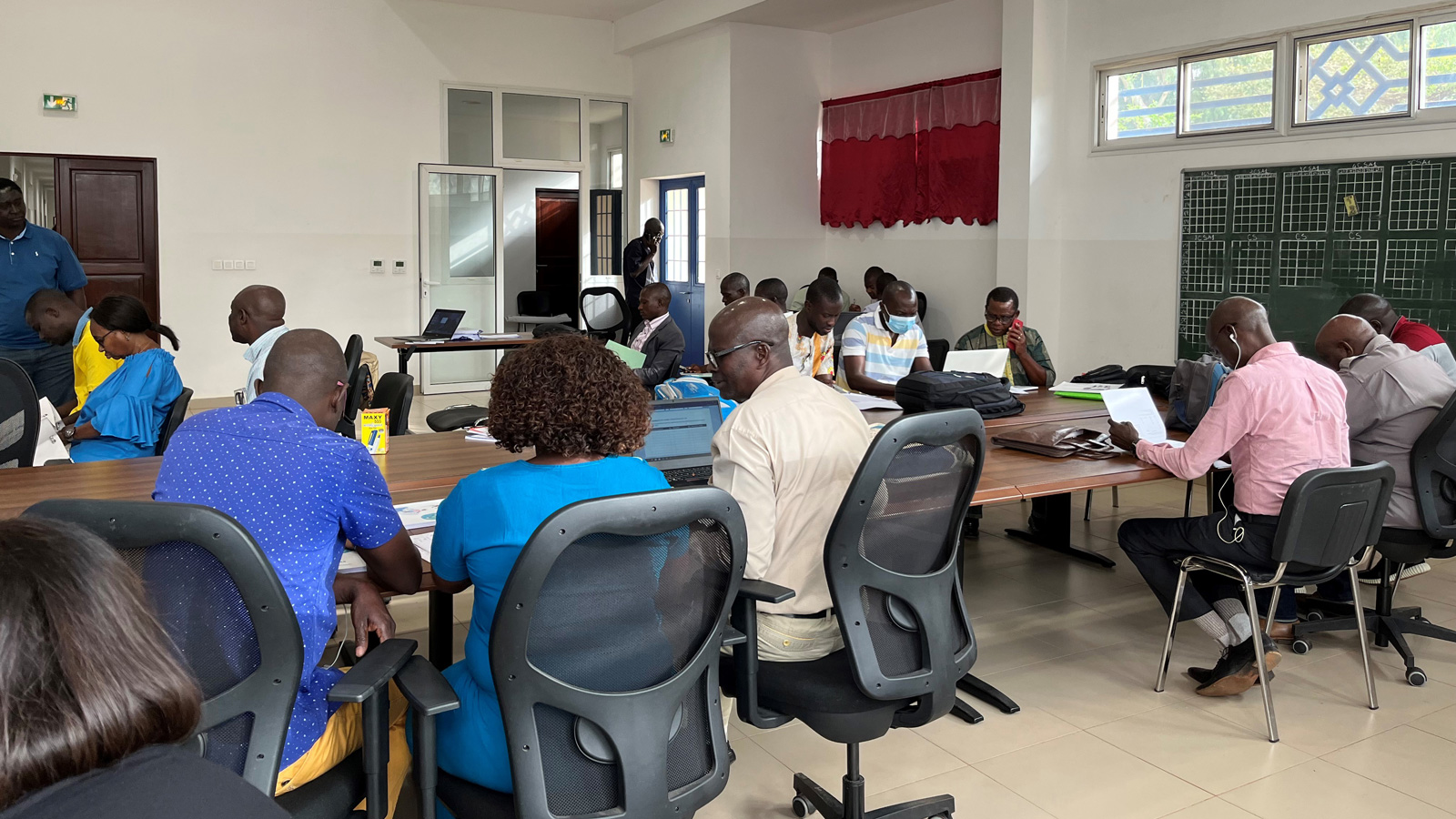Primary education reform underway in Guinea Bissau

Another stage in the process of curricular reform of primary education in Guinea-Bissau (six years of schooling) has recently been concluded, which, since 2015, has received support from the Gulbenkian Foundation and scientific and pedagogical guidance from the University of Minho.
Having prepared programmes for five 1st cycle subjects (1st to 4th year), eight 2nd cycle subjects (5th and 6th year), student manuals and teacher guides, the new curriculum was tested in 10 schools in five pilot regions: Bafatá, Cacheu, Oio, Quinara, and the Autonomous Sector of Bissau. The cascade training model (involving the training of trainers) was also used in these regions, ultimately reaching around 3000 teachers.
Following the piloting of the materials for the 1st and 3rd years, which took place during the 2021/2022 academic year, the Gulbenkian Foundation recently participated in a workshop to analyse, validate and finalise student manuals and teacher guides with a view to producing the final versions of the materials.
Experimentation with 2nd and 4th grade pedagogical materials will continue until the end of 2024, with the aim of implementing the new 1st cycle curriculum throughout the country.
This project is the result of a partnership between the Ministry of Education through the National Institute for the Development of Education in Guinea-Bissau, the Calouste Gulbenkian Foundation, and the University of Minho, with co-financing from UNICEF and the World Bank.
